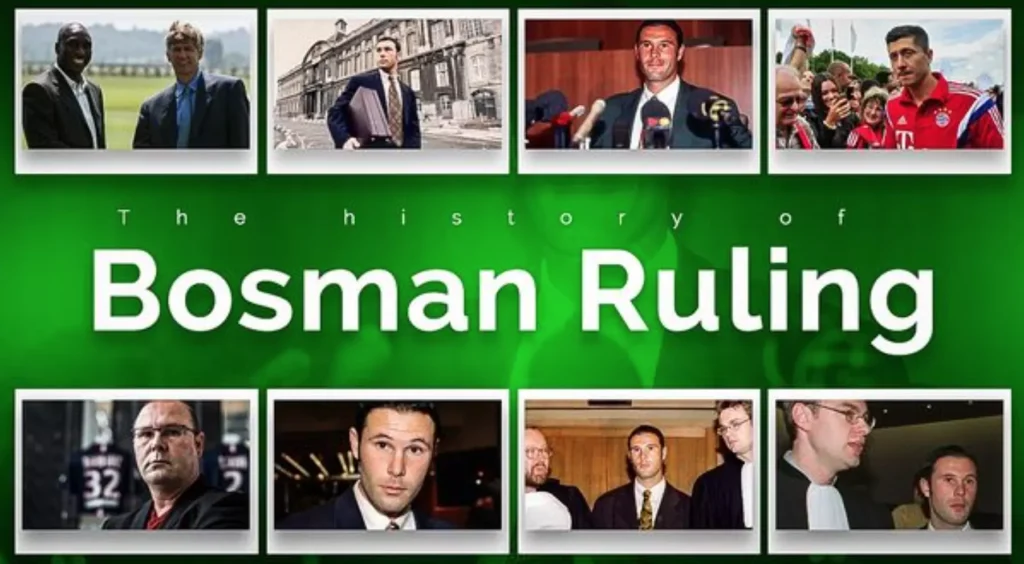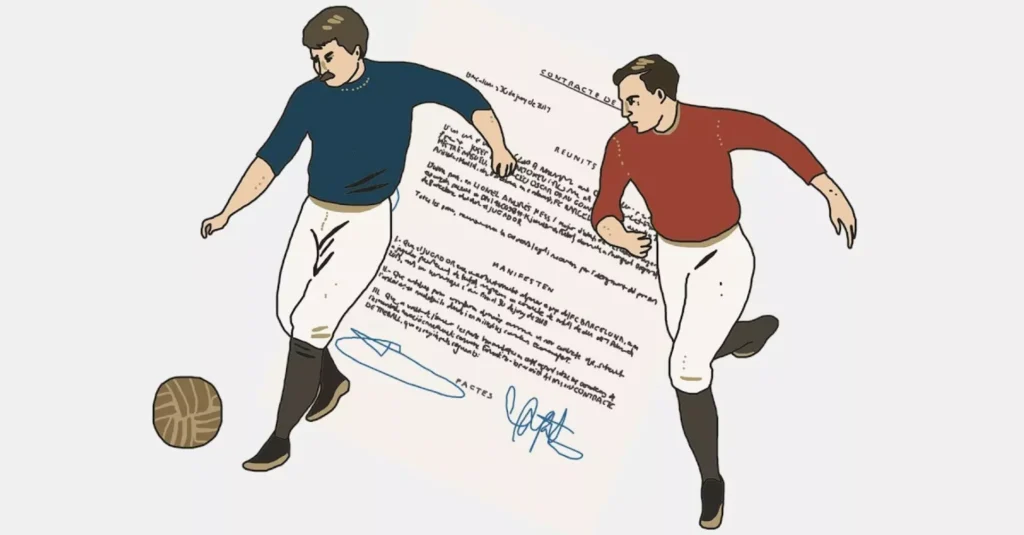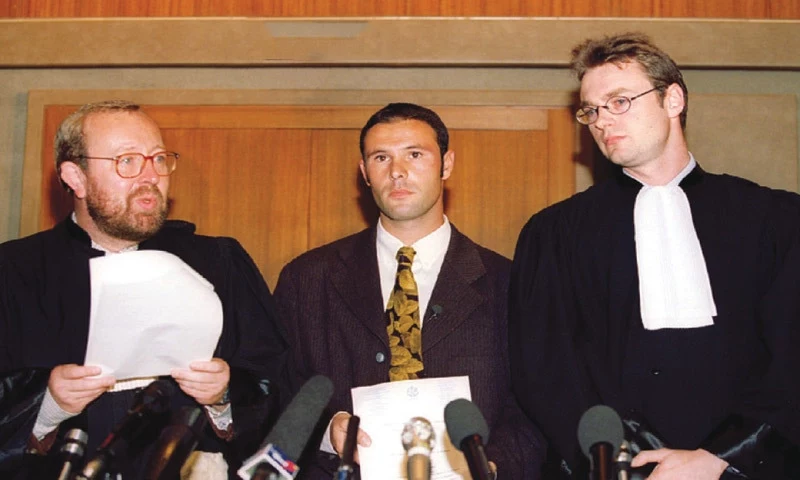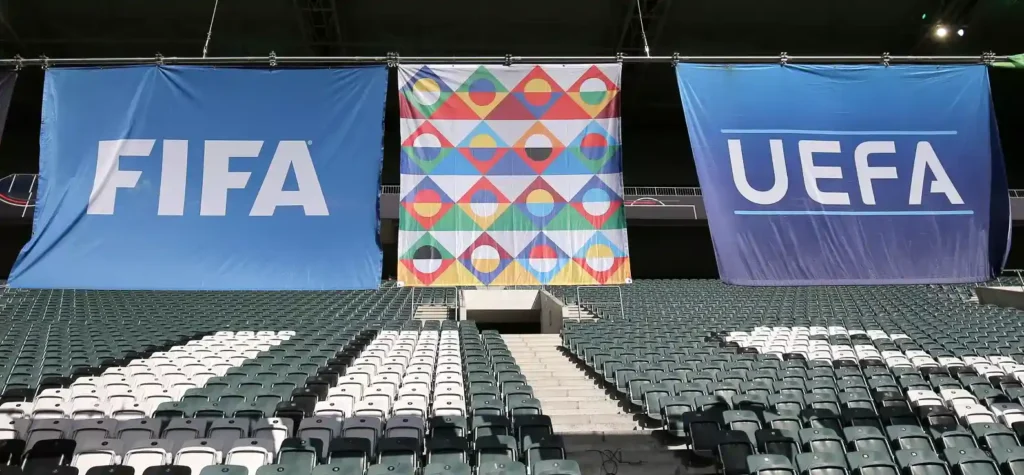It is an opportunity to pay tribute to those early founding fathers who, following on from the establishment of the rules of the game and the Football Association in 1863, saw the beginnings and the acceptance of professionalism in 1885 with the formation of the Football League in 1888 by business people keen to involve their clubs in more than just the FA Cup and also the beginning of the game as a commercial interest compared to those at the FA who came from a public school background and were keen to maintain the Corinthian and sporting aspect of the game.
With the development of the football league, the soccer registration process began by which a player became tied to a club as a professional and could not leave that club without the club’s permission.
Following that restriction in the cause of “equal opportunities” came the introduction of the maximum wage.
At the same time, such professional soccer players in English football were not accorded ordinary working men’s rights under the law of the land covering such severe issues as injuries and compensation.
It was inevitable that accompanying the industrialization of the British economy and the introduction of trade unions, attempts would be made to organize soccer player registrations.
Formation Of Professional Footballers’ Association
After earlier attempts had failed, a meeting in Manchester saw the attendance of Manchester United and Manchester City players together with representatives of many clubs, predominantly from the North and the Midlands.
Under the Chairmanship of Billy Meredith and the drive of Charlie Roberts, both of Manchester United, they attempted to formalize a players’ structure to be elected to the FA Council and be the formal democratically elected voice of the players.
Such actions were viewed as a threat by the Football Association, who were worried about players’ strikes and frowned upon the Players’ Association to the extent of refusing to register union players, causing a strike threatening the start of the 1909 season until the FA caved in and granted recognition.
Since that time, the maximum wage has been removed. Freedom of contract has been achieved with many other benefits, particularly the rights of the Professional Footballers’ Association (PFA) to source its income from television fees since the 1950s, the development of satellite television in the 1980s, and the formation of the English Premier League in 1992.
The Professional Football Association has grown into a robust organization with offices in Manchester, Birmingham, and London.
They now have a part in every aspect of the game affecting soccer players, dealing with every aspect of a player’s career under a formal collective bargaining agreement, having membership in many other sporting organizations, and playing an influential part in the worldwide organization of football players through FIFPro and having representation on FIFA and UEFA Committees.
The forefathers would be proud of the progress since the Chairmanship of Billy Meredith to Chris Powell, and in between times, many significant personalities of the caliber of Jimmy Hill, Sir Bobby Charlton, Jimmy Guthrie, Sammy Crooks, and modern-day Chairmen such as Steve Coppell, Brian Talbot and Garth Crooks to name but some.
What Is The Bosman Ruling
The Bosman ruling is a 1995 decision of the European Court of Justice that significantly impacted the regulation of professional soccer players within the European Union (EU).
The ruling stemmed from a case brought by Jean-Marc Bosman, a Belgian soccer player who argued that EU law prohibited his former team from demanding a transfer fee for him when he wanted to move to another team within the EU, as it restricted his ability to move and work within the EU freely.
The court ruled in favor of Bosman, stating that soccer players who were out of contract were free to move to a new club within the EU without their former club being entitled to a transfer fee.
This ruling also stated that clubs within the EU were not allowed to place quotas on the number of non-national players they could field.
The Bosman ruling had a significant impact on the professional soccer industry. It led to substantial changes in how soccer players were registered, transferred, and traded between clubs within the EU.
European Laws And The Soccer Industry
European Union law is of massive importance for the soccer industry worldwide. Although the EU accepts the ‘specificity of sport,’ and article 165 of the Treaty of Lisbon makes specific reference to the unique nature of sport, it grants no exemption from EU law for the industry.
Several long-standing and traditional soccer practices have been struck down or fundamentally altered by the European Union (e.g., exclusive or discriminatory ticket-selling arrangements, collective TV agreements, anti-competitive practices), and several of its regulations and rules remain potentially at risk of being declared unlawful.
Let us focus on one specific area of soccer that has come into conflict with EU Law – the soccer Transfer System.
The Bosman Case
The Bosman case arose because of a Belgium player called Jean-Marc Bosman. Bosman’s contract with Belgium club side RFC Liege had run out, and he wanted to be transferred to the French club Dunkerque.
However, Liege refused to let Bosman leave without paying a transfer fee which Dunkerque was unwilling to pay. Bosman claimed that as a European Union citizen, he possessed the right to “freedom of movement” within the European Union if he wished to find work.
The transfer system prevented him from exercising his right to freedom of movement. Bosman argued that the system should be changed so players who were out of contract with their club could move to another club without paying a transfer fee.
Bosman won his case at the European Court of Justice, which ruled against RFC Liege, UEFA, and the Belgian Football Association.
The Implication Of The Bosman Case
The implications of the Bosman case were far-reaching for soccer across Europe. Clubs started signing players for more extended contracts than before. Otherwise, they risked losing their players on free transfers.
Many smaller clubs could not afford to sign more extended contracts with players (especially young players) who may not fulfill their potential, so the good players at smaller clubs often were able to move to a bigger club on a free transfer.
This meant that some clubs lost revenue from transfer fees, although despite initial predictions, large numbers of clubs did not go into liquidation as a direct result. However, some English Premier League clubs suffered due to having to pay high wages on long contracts upon relegation from the top division.
Secondly, the Bosman case has worked to the players’ benefit. Because out-of-contract players are sought after, the players can demand higher wages and move to the club that offers the best salaries. If effect, the Bosman case has increased ‘player power’ considerably.
Now, as in all other industries, the best players have greater control over their careers and can demand wages that many would argue reflect their skills.
Post-Bosman Challenges to The Transfer System
In 2000, the European Commission announced that it was taking action against the soccer authorities because the current international transfer system breaches the right to freedom of movement between EU states under the Treaty of Amsterdam, even for players still under contract.
They argued that soccer players who wished to break their contract of employment unilaterally should be able to leave with a term of notice, as employees in other sectors can do, with only a relatively small amount of compensation being paid in return.
This action led to a compromise between the soccer authorities and the Commission, which FIFA’s executive ratified in the summer of 2001.
The new transfer regulations apply to every player who signed a contract after 1st September 2001 and is involved in an international transfer. They did not refer to the payment of a transfer fee.
The regulations are as follows:
- Training Compensation for Players under 23
- Protection of contracts for the first 2-3 years by – a sporting sanction of a four-month suspension for a player who unilaterally breaches their contract within this period – compensation reflecting the wages and period left on the contract of the player following national law
- Movement for players only in 2 transfer “windows” a season
- Creating an independent and objective disciplinary and arbitration system to deal with contractual disputes and compensation.
The Future Of Soccer Registration
Since all football’s governing bodies are monopolies, they must act reasonably and not abuse their position. Otherwise, they will be in breach of EU law.
In recent years, FIFA and UEFA have been successfully challenged over ticketing policies, and TV rights for the Champions League and Premiership have been broken down.
Let’s hope that soccer registrations and player movements do not get caught up in legal battles again.










